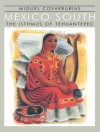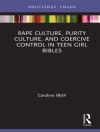Cosmopolitan Spaces in Odesa: A Case Study of an Urban Context is the first book to explore Odesa’s cosmopolitan spaces in an urban context from the nineteenth to twenty-first centuries. Leading scholars shed new light on encounters between Jewish, Ukrainian, and Russian cultures. They debate different understandings of cosmopolitanism as they are reflected in Odesa’s rich multilingual culture, ranging from intellectual history and education to music, opera, and literature. The issues of language and interethnic tensions, imperialist repression, and language choice are still with us today. Moreover, the book affords a historical view of what lay behind the Odesa myth, as well as insights into the Jewish and Ukrainian cultural revivals of the early twentieth century.
Table des matières
List of Illustrations
Acknowledgments
Introduction
Mirja Lecke and Efraim Sicher
1. Localism and Cosmopolitanism in Odesa: The Case of the Odesan Literary-Artistic Society, 1898–1914
Guido Hausmann
2. The Ukrainian Odes(s)a of Vladimir Jabotinsky
Yohanan Petrovsky-Shtern
3. Merchants, Clerks, and Intellectuals: The Social Underpinnings of the Emergence of Modern Jewish Culture in Late Nineteenth-Century Odesa
Svetlana Natkovich
4. Elitism and Cosmopolitanism: The Jewish Intelligentsia in Odesa’s School Debates of 1902
Brian Horowitz
5. Ethnic Violence in a Cosmopolitan City: The October 1905 Pogrom in Odesa
Robert Weinberg
6. The Cosmopolitan Soundscape of Odesa
Anat Rubinstein
7. Gender, Poetry, and Song: Vera Inber and Isa Kremer in Odesa
Mirja Lecke
8. The End of Cosmopolitan Time: Between Myth and Accommodation in Babel’s Odesa Stories
Efraim Sicher
9. Where the Steppe Meets the Sea: Odesa in the Ukrainian City Text
Oleksandr Zabirko
10. The Ukrainization of Odes(s)a? On the Languages of Odesa and Their Use
Abel Polese
11. Rereading Babel in Post-Maidan Odesa: Boris Khersonsky’s Critical Cosmopolitanism
Amelia M. Glaser
Contributors
Bibliography
Index
A propos de l’auteur
Efraim Sicher is Emeritus Professor of Comparative Literature at Ben-Gurion University of the Negev, Israel. He has published widely on modern Jewish culture, including Jews in Russian Literature After the October Revolution: Writers and Artists Between Apostasy and Hope (Cambridge University Press, 1995), and has edited the unexpurgated stories of Isaak Babel in Russian, English, and Hebrew. His book Babel in Context was published by Academic Studies Press in 2012. Among his recent books are The Jew’s Daughter: A Cultural History of a Conversion Narrative (Lexington Books, 2017); Re-envisioning Jewishness: Reflections on Identity in Contemporary Jewish Culture (Brill, 2021); and Postmodern Love in the Contemporary Jewish Imagination: Negotiating Identities and Spaces (Routledge, 2022). His new book (with Daniel Feldman), Poesis in Extremis: Literature Witnessing the Holocaust is forthcoming from Bloomsbury.












